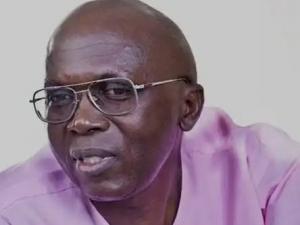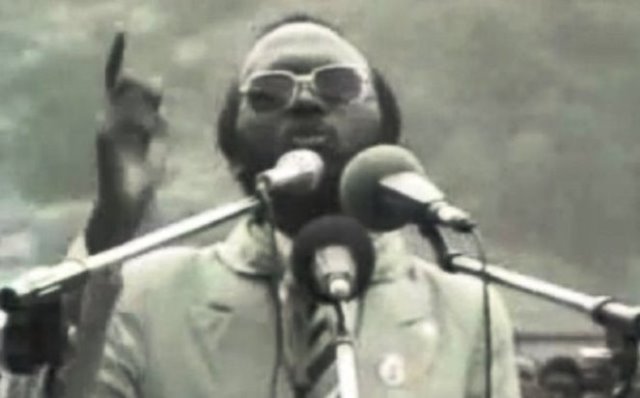
Genocide Convict Leon Mugesera Denies Content in Speech Used to Convict Him for Life
An audio speech used in the genocide case against academic Dr Leon Mugesera was fabricated with new content added, the Court of Appeal has heard.
Appearing for the start of his appeal against a life sentence for his involvement in the 1994 genocide against the Tutsi, Mugesera told court that the speech which the state brought to court is not the original speech.
For nearly 20 years, first in Canada – which deported him back to Rwanda after a long immigration legal battle, Mugesera has been accused of making a speech considered to have created the ideological case for the genocide against Tutsis.
On November 22, 1992, at Kabaya in Gisenyi prefecture (now part of Rubavu district) in western Rwanda border region. Linguist Dr Mugesera was Vice-President of the incumbent ruling party MRND (National Republican Movement for Democracy and Development) in Gisenyi, which was a regime stronghold of then President Juvénal Habyarimana.
In this district, in the small town of Kabaya, Mugesera delivered his speech at a party meeting attended by approximately one thousand Rwandans. However, the speech was also recorded and it reached a far more extensive audience when it was broadcast in full by the RTLM radio station in November 1993 on the first anniversary of the Kabaya meeting, only a few months before the outbreak of the genocide on April 7, 1994.
Mugesera’s speech is an important document because it constitutes the earliest evidence of genocidal discourse expressed by a member of the incumbent political party in Rwanda in a public forum and, as such, it has often been regarded as offering a ‘blueprint’ for the practical implementation of the genocide, according to experts who have analyzed it.
The speech he made in Kabaya in 1992 is lengthy: its delivery took roughly thirty minutes and the transcription of the original Kinyarwanda text amounts to some three thousand words. Mugesera coined the term “cockroaches” as appellation for Tutsis.

After the genocide, Mugesera fled Rwanda and settled in Canada with his wife and children. A court battle to send him to Rwanda to face justice went up to the Canadian Supreme Court. He was deported to Rwanda in January 2012.
Despite attempting to drag the case on, court in Rwanda convicted Mugesera to life in jail on April 15, 2016, just two days after the end of the national weeklong mourning period which lasts April 7-13.
He appeared in the Court of Appeal this Monday February 10 for the second appearance. The first session in October last year failed to kickoff. At the time, there was heated confrontation between Mugesera and the Appeals bench.
Mugesera asked for names of judges but they refused to reveal identities. He asked to defend himself while seated “because I’m sick”, the judges refused. The bench decided to adjourn the session. Such theatrics have been the norm throughout his legal battle even back in Canada.
At one point while in jail at Mpanga prison in Nyanza district, which is an international facility with services not in any other jail like satellite TV, Mugesera went public in 2017 accusing prison of refusing to provide him with non-sugar bread.
“Everything else is fine here,” said Mugesera in interview published by a Canadian agency, adding, “except that the prison is not availing me with ‘Pain de Ble entier’ bread which is bought from La Galette bakery and Simba supermarket.”
But then again yesterday, Dr Mugesera made a shocking move. He told the Appeals bench that the speech, the basis of which he was convicted, is not the authentic speech he made on November 22, 1992.
Dr Mugesera said the speech before court has had other sentences added to make it horrible and thereby lead to his conviction. Audio experts have confirmed that the speech before court is fabricated, said Mugesera.
Asked by the Appeals bench to tell court his version of what the original speech was, Mugesera said he doesn’t remember because the words were spontaneous and not a prepared script.
According to prosecution, the audio was retrieved from the archives of the state broadcaster ORINFOR, now called the Rwanda Broadcasting Agency (RBA).
Prosecution for its part told the Appeals bench that Mugesera’s assertions should be ignored and considered as part of his deliberate scheme to drag the case on endlessly.
With his latest rebuff of a kep prosecution element, the court may have to call experts to review the audio. The court will also to review word to word of the speech, suggesting the appeals could take years. The court continues.
